Why did China hold a cremation competition?
- Published
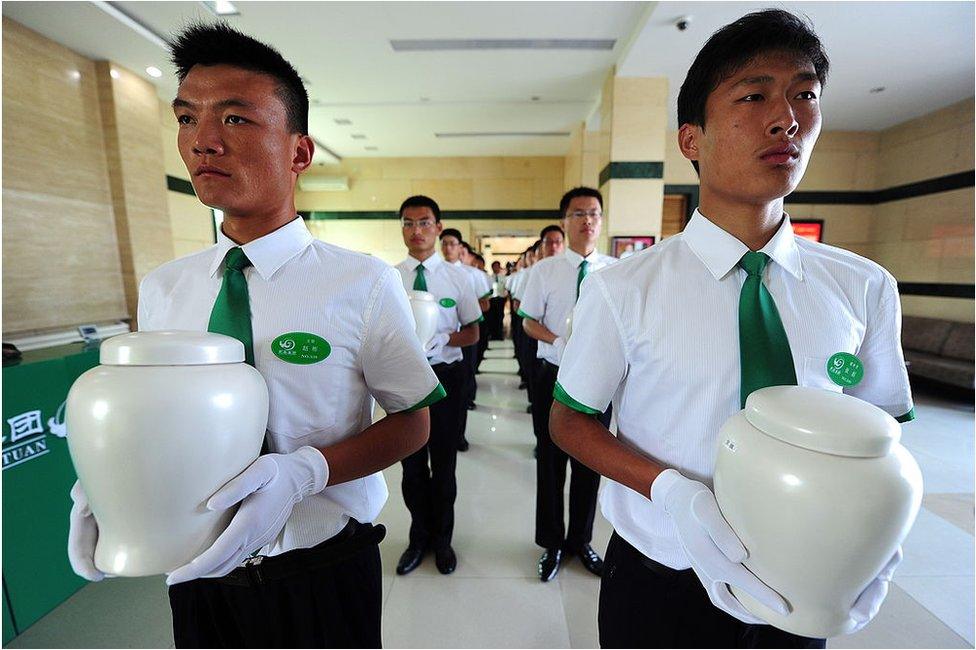
About half of the 10 million people who die every year in China are cremated
Earlier this week the Chinese government hosted an unusual competition. More than 50 of the country's best battled it out to be crowned the country's top cremator.
It was the first-ever national contest for cremation workers, but its very existence cuts to the heart of Chinese ideas about death, land use and a desire to instil national pride in a stigmatised vocation.

How do you win a cremation competition?
Details on the actual challenges were scant in state media reports, which said contestants had to show "technical operational skills" and take an examination on vocational knowledge.
The civil affairs ministry did not respond to the BBC's request for details.
But a document on its website, external (in Chinese) lists key national standards which include: furnace preparation, receiving and cremating the body, collecting the ashes, and maintaining and fixing equipment.
A ministry spokesman told Xinhua news agency, external that an important aspect of being a cremation worker was to have "a diligent attitude, and send off the deceased in a peaceful and holistic manner".
Family members should also receive their loved ones' ashes in as pure a form as possible - "as white as ivory and without any kind of impurity".
The top three winners were from the crematorium associated with Beijing's famed Babaoshan cemetery, and another one in the city of Nanchang.

What's it like being a cremation worker in China?
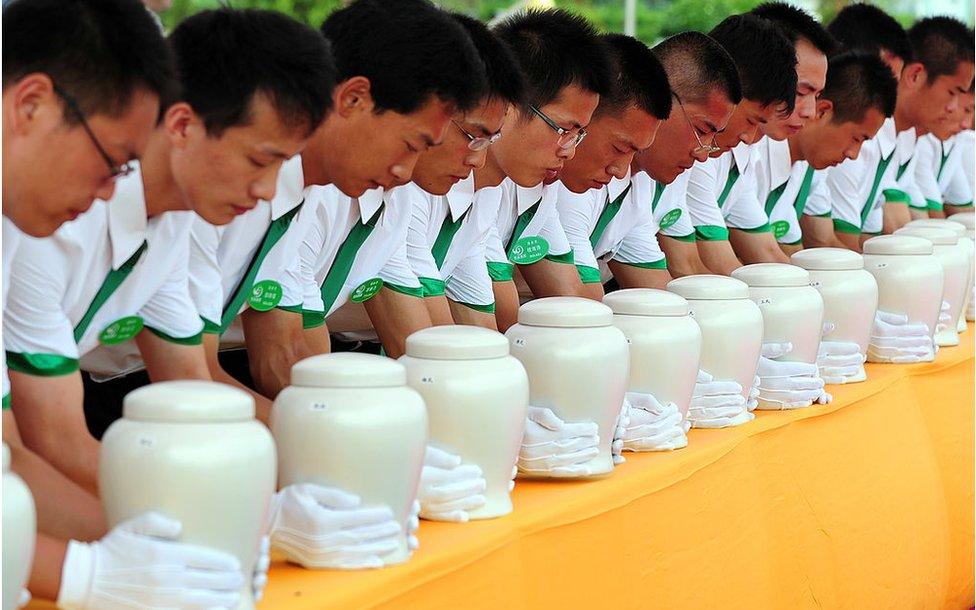
Some cemeteries offer biodegradable urns, as seen at this Tianjin cemetery in 2010
State media featured the stories of several who took part in the competition.
They spoke of the long hours and the difficulties of working all day in rooms that can reach up to 50 Celsius in temperature and managing 600 Celsius furnaces.
"Usually we have to work 10 to 12 hours in each shift. When there's a peak in our workload, we can get up to 250 to 260 bodies a day, we wouldn't know when we'd knock off," said Liu Yong who works in a Shanghai crematorium.
Cao Lianxing from Jiangsu said cremation workers needed to be highly skilled.
"The bones need to be burnt completely while maintaining their white purity, there cannot be any black smoke. Once the day is done, we have to wait for the furnace to cool down so we can clean it to prevent the remains from clogging it up," he said.
He added that his crematorium, which only has 10 workers, sees more than 10,000 bodies a year.

What does competitive cremating achieve?
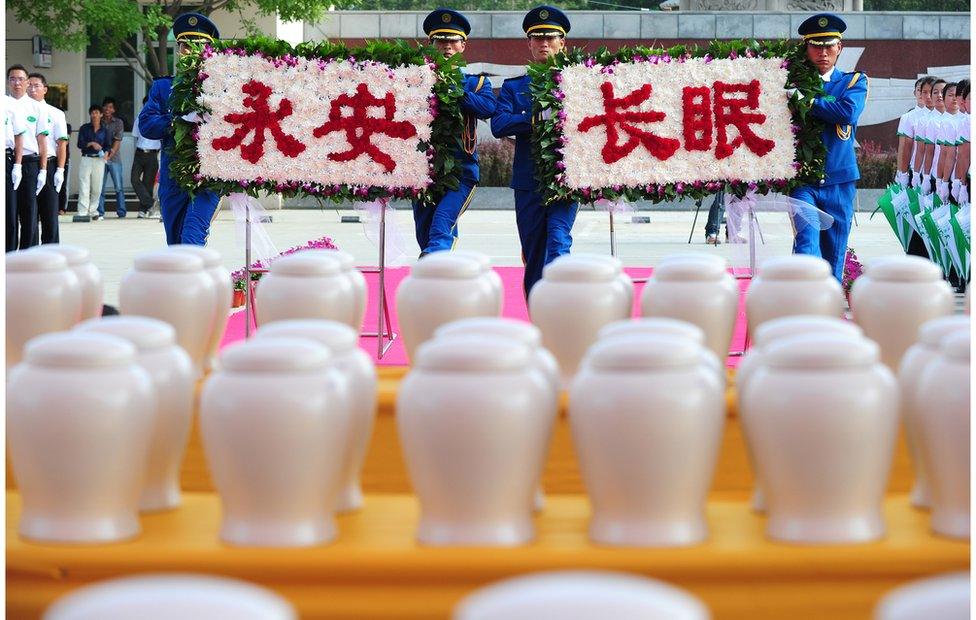
The Chinese government has been promoting cremation to save land
One reason was to boost the profile and indeed morale of cremation workers, given an apparent shortage.
The civil affairs ministry said in a statement, external that the competition "enhanced society's understanding of the cremation industry... and gave a strong push to the building of the cremation worker corps."
A ministry spokesman said cremation workers faced strong social stigma as well as the potential health risk of handling bodies with infectious diseases.
"What they're still most worried about is society's prejudice," he told Xinhua, adding that there were cases of cremation workers hiding their occupation when filling out school forms as they were worried their children would face discrimination.
The government has also promoted the practice to save land for farming and development.
Currently, about half of the 10 million people who die in China every year are cremated, according to figures from the European Federation of Funeral Studies.
As it becomes more widespread, crematoriums appear to be understaffed and overburdened.

But why is the state so eager to encourage pride in cremating?
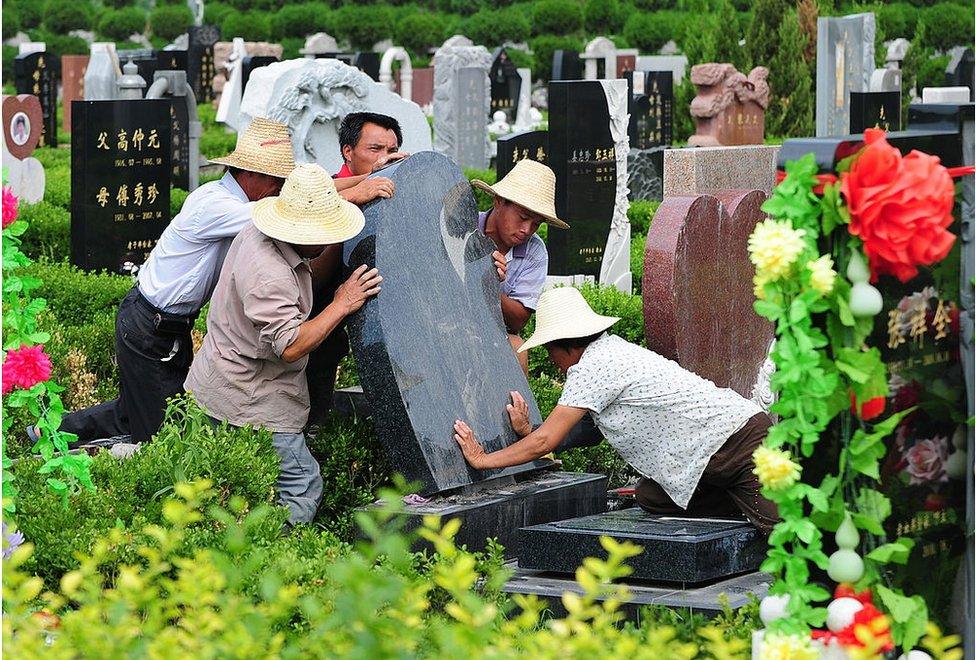
Burying is still considered the proper and traditional way to send off the dead by some Chinese
The competition can also be seen as part of a national drive to encourage vocational work.
It was part of a tournament testing the skills of various service jobs, from nursing the elderly to sign language translation. The overall winner gets awarded the National 1 May Labour medal by China's trade union federation.
Last year Premier Li Keqiang called for reform in vocational education to maintain the employment rate and increase the number of skilled workers.
Vocational work and schools are still looked down upon by many parents in China, who prefer their children attend universities instead, an irony perhaps, given that Chinese Communist ideology was founded on the importance of the worker.

How does cremation fit with the Chinese idea of death?
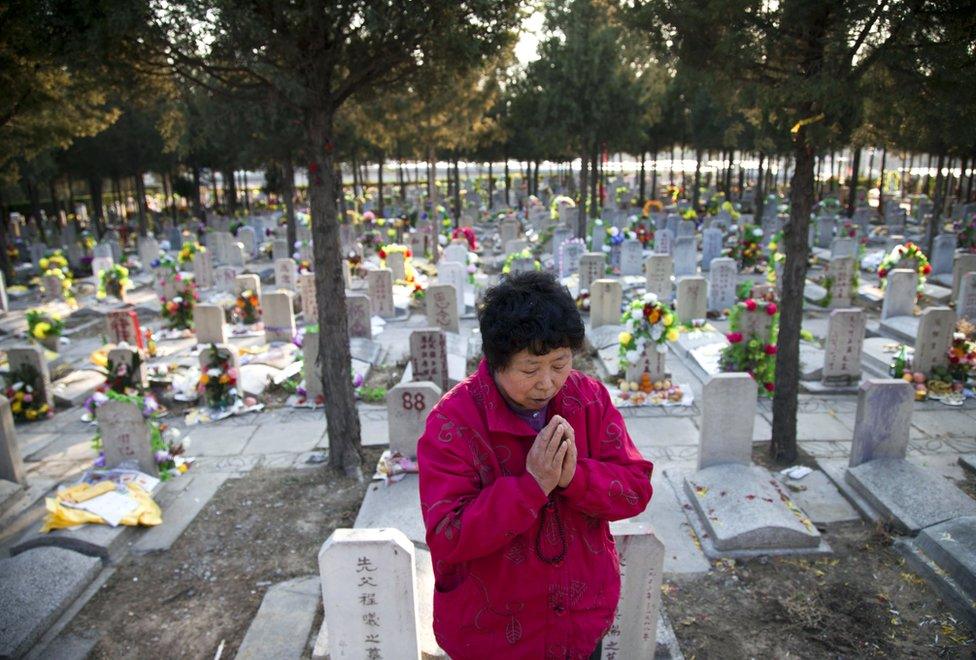
On Qing Ming, or Tomb Sweeping Day, the Chinese gather at their loved ones' graves to sweep and clean them while paying respects
The drive for more cremations has continued even though it was traditionally considered taboo. Burning a loved one's body can be seen as disrespectful.
Chinese culture has a tradition of ancestor worship. It is also influenced by Taoist and Confucian beliefs, where "the destruction of the body often meant disconnection from family and ancestry, demolition of the place of return, and disappearance of the person," wrote academic Christina Han of the University of Toronto in a paper on cremation., external
Having a proper tomb to pay respects to is considered so important that there is a special day for it in the Chinese calendar - Qing Ming, or Tomb Sweeping Day, when families gather to tidy the graves of their loved ones and make offerings to the departed's spirits.
But government drives such as setting cremation targets and making cremation mandatory has had unintended social consequences.
China Daily reported in March, external on a spike in grave robbing, and elderly people committing suicide before local officials mandated cremation, so they could be buried.
In November 2014 two officials were arrested after they allegedly bought corpses from grave robbers to meet government cremation targets.